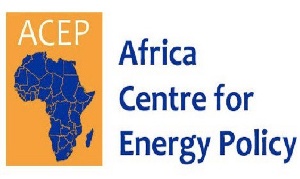Civil Society Organisations working on disability-related projects are galvanizing forces to hold government accountable for every penny allocated to be spent on persons with disabilities in Ghana.
The consultation led by the Africa Centre for Energy Policy and the Ford Foundation comes at a time there are no indices to measure milestones in disability-related interventions.
The CSOs fear the trend leaves room for funds meant for PWDs to be exploited for other interests.
According to the United Nations, evidence and experience show that when barriers to [people with disabilities] are removed, entire communities benefit as PWDs are empowered to participate fully in societal life.
In Ghana; programs, policies, and projects targeted at the 5 million persons with disability remain disjointed and largely uncoordinated.
A Disability Law was passed in the year 2006 to safeguard disability rights; push for greater accessibility to public services; education; health; jobs, transport among others.
Thirteen years down the line; there are no indices measuring how much resources has been pumped into disability enhancement and accessibility projects.
The same fate has bedeviled the 3% share of the District Assemblies Common Fund; which continues to encounter allegations of corruption and misuse of the funds for unintended purposes.
The trend has attracted a study from the Africa Centre for Energy Policy which is working with the Ford Foundation to map all PWD interventions with their targeted stakeholders.
Speaking to Ultimate News after a consultative meeting with interest groups in the PWD community; Executive Director of ACEP Benjamin Boakye expressed concern, resources allocated for persons with disability would remain exploited if systems of accountability are not properly instated.
The Ghana Federation for the disabled made up of some seven bodies including the society for the deaf, the Ghana Blinds Union, the federation for the physically disabled, mental health society, Inclusion Ghana, Share Care and Burns survivors are well represented at the forum.
Gender representative of the GFD Alice Appiah pointed out that the biggest challenge of persons with disabilities in the country is access to education.
She bemoaned the woefully inadequate number of schools for children with disabilities and special needs.
“She told reporter Ivan Heathcote – Fumador, “if someone is visually impaired. We have just two special schools for the blind in Ghana and that is the Akropong School for the Blind in the Eastern region and the Wa school for the blind in the Upper West region. These are the only special schools. Now we are talking about mainstream schools with inclusive education and this is also a challenge because the appropriate logistics are not being made available.”
Ashanti region president for the GFD; Alfred Amponsah Tebi reiterated that as part of the road map towards accountability a percentage of oil revenues should be channeled into the education of persons with disabilities in the country.
The consultation is expected to come out with better structures for funding disability-related interventions while ensuring that such projects and programs are monitored and measured with strict proofs of accountability.
It is expected to bring on board Key CSOs operating in the disability space, government representatives, MDAs, women groups, traditional authorities, and the Media.
General News of Sunday, 6 October 2019
Source: Ivan Heathcote-Fumador













